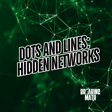Introduction to Charlatans and Deception
00:00:00
Speaker
charlatans they've been with us for centuries selling miracle cures false promises and easy answers but here's the surprising part there's now an entire body of science devoted to understanding them the book charlatans draws on nearly 25 case studies to explain not only who these figures are but why we keep falling for them Welcome to Breaking Math, and I'm your host, Autumn Finaf.
00:00:26
Speaker
In this episode, we'll explore how charlatans hack the human operating system, why they thrive in the digital age, and what research says ah about protecting ourselves.
00:00:38
Speaker
When we hear the word charlatan, we often picture someone that's a shady character on the edge of 19th century town peddling miracle tonics.
00:00:49
Speaker
But today, charlatans are alive and well. Only now, they're on our news feeds, our ballads, and our wellness blogs. They've traded the traveling cart for TikTok, the pamphlet for a viral video, or the megaphone for a live stream.
Kiko Toro on Political Power and Deception
00:01:08
Speaker
The book Charlatans by Kiko Toro and Moses Nam is more than just a catalog of frauds. It's an x-ray of how deception works and why it keeps working.
00:01:20
Speaker
and Because there's an uncomfortable truth. The charlatan is only half the story. The other half is us, our hopes, our fears, our hunger for uncertainty.
00:01:34
Speaker
Which brings me to today's guest, Kiko Toro. He's a journalist and commentator who has spent years unpacking political power, and he's a thinker for dissecting forces that shape our world.
00:01:48
Speaker
But before we begin... I have to make a really important note for this episode. The discussion you're about to hear reflects the views of the authors of charlatans.
00:02:02
Speaker
These opinions are their own and should not be taken for those of me, the interviewer, anyone at Breaking Math Podcast or Breaking Math Media or its affiliates.
00:02:14
Speaker
So with that in mind, let's step into the strange, unsettling and surprising scientific world of charlatanism. Kiko, thank you for coming on the show and joining us today. Let's start by defining terms here.
Exploiting Human Gullibility and Beliefs
00:02:29
Speaker
Now, most of us hear the word charlatan, we picture some obvious scammer in our inbox, whether that's a fake guru with a shady supplement. But in your book, the word has a very particular weight.
00:02:44
Speaker
It's not just about fraud. It's about exploiting how some human beings are wired. So the big question that I have for you up front is,
00:02:56
Speaker
Why are people so gullible? And let me even rephrase this a little bit more bluntly. How can anyone be persuaded to do anything so stupid? It's amazing, but we we fall for things because we care. If there's something that you really care about, if there's like an idea or a belief that you're really, really committed to that...
00:03:23
Speaker
The world doesn't make sense to you if that thing is not true. And somebody comes along and starts like just petting that belief and affirming it for you. And if especially if they're charismatic and they affirm it like powerfully.
00:03:36
Speaker
We're just drawn to those people. We can't help It it it happens sort of automatically. And then. There are people out there who know how to use that first, like, moment of spark to reel you in and just get you to go deeper and deeper and deeper into whatever it is that they're scheming.
00:03:53
Speaker
And that's what we call charlatans. But in the book... The word charlatans is a very particular weight. You go from about 25 different case studies. And it's not just about fraud, but it's also about exploiting how human beings are wired.
00:04:12
Speaker
You come from this scientific perspective along with, you know, this, I'll say, essentially scammy side of things. So how exactly do you define a charlatan in the 21st century?
Emotional Manipulation by Charlatans
00:04:25
Speaker
A charlatan is what they've always been. Someone who asserts a claim to special knowledge or special powers and who uses that that claim to connect with you, to earn your trust, and then to manipulate you and to get you to act against your own best interests.
00:04:44
Speaker
Which is um the amazing thing. Charlottesons are people who suck us into this web of of of beliefs where we feel like our identity is connected to the thing that they're selling. And like they can't even be criticized because we're so bound up with the thing that that connects us to them that to criticize them is to criticize us.
00:05:01
Speaker
thing we noticed again and again we were writing this book is that Almost in every case, are charlatan's number one defenders are their victims. so Now, police really struggle with this because how do you prosecute a guy when, like, the victims are like, no, he's her fearless leader?
00:05:18
Speaker
So, essentially, you have made these people into hackers of the human operating system. Right. Can you unpack that metaphor a little bit more for us?
00:05:30
Speaker
Well, sure. i mean, our brains are wired in a certain way. When we receive a new input, we process it emotionally before we are even aware of what we're doing. So when you hear, it's really counterintuitive, but there are lab studies that actually show this temporally.
00:05:49
Speaker
So the the parts of your brain that react emotionally to a given message activate before your prefrontal cortex and your thinking bit of your brain. so this is what Daniel Kahneman called fast thinking and slow thinking.
00:06:02
Speaker
So when a charlatan like champions your beliefs back to you really powerfully, you're drawn to them. Like you feel attached to that message before you've even had a chance to think. So so that's why it's so difficult to to resist these calls because we feel like these things need to be true.
00:06:20
Speaker
So what's the comparison to fraudsters, snake oil salesmen, or anything of that sort throughout history?
Fraudsters vs. Charlatans: Key Differences
00:06:30
Speaker
Look, and there's obviously a spectrum there and like people shift between these categories. But the reason we wanted to do Charlottesville specifically is that a fraudster is kind of boring. A fraudster just fools you and then walks away with your money and then you realize you've been fooled and then the gig is up.
00:06:47
Speaker
So I don't kind of... They don't do what charlatans do. Fraudsters are anonymous, usually. They're not public figures. Charlatans are always public figures. and people who are legal enough to have ah operate out in the open.
00:07:01
Speaker
And charlatans, they embed themselves into your psyche and into your life, so they're able to take you for a ride that often just doesn't doesn't have an end. Like, there are stories, especially...
00:07:13
Speaker
When you look at some of the lifestyles or wellness charlatans or religious charlatans that can just continue preying on the same victim for decade after decade after decade. and And people don't know who they are aside from like their connection with their charlatan.
00:07:30
Speaker
It almost feels like we've built the perfect stage for them, whether that's social media, fragmented institutions, and the endless appetite for just simple answers in a very complicated world. One of the strengths of charlatans that I've noticed is the way that it's told.
00:07:49
Speaker
It's not an abstract theory, but through vivid stories in each case is like this little detective novel. It's the rise of the wellness guru, the strongman politician, or the big scammy thing that academics don't like to talk about, and we'll get into this later in the episode, is the crypto messiah. The industries differ.
00:08:12
Speaker
But the mechanics feel eerily familiar. you want to talk about a couple of these cases in the book? One that I found really interesting was astrology.
00:08:27
Speaker
And there was another one on Japanese blood types. Let's get into that before we get into some
Charlatans in Belief Systems: Astrology and Beyond
00:08:32
Speaker
of the heavier stuff. Sure. Sure. Yeah, this this was interesting. Astrology is hugely popular with with everyone, amazingly to this day, because but this is a system of beliefs that was developed around the same time that people thought that if you were sick, you needed leeches and that like bad air made you sick or that ah you know witches were lying behind every corner. And like over time, as as science developed, we sort of ditched most of these medieval superstition. But there was one that got through.
00:09:02
Speaker
So why exactly? And there's some people like I know get really upset because like astrology speaks to them really personally. But when you start to look at the way astrologers like charlatan astrologers are not all charlatans, obviously, but charlatan astrologers can really burrow into their victims' lives because that the victims are asking, they're already out looking for the with that for that connection with sort of metacosmic values such that they're already primed to like be told really, really outlandish things. And in the hand in the hands of someone who's ill-intentioned or unscrupulous and wants to take advantage of you, that can be like really, really dangerous. And then we see it in the book. There are people who would lose their life savings and things like this. But one way that...
00:09:47
Speaker
that sometimes it makes it easier to understand how weird astrology is, is if you look at a separate system of belief and that is like it, but in a completely different way. And I live in Japan now. And in Japan, when you meet people there, you'll usually ask your name, where you're from, and what your blood type is.
00:10:03
Speaker
And then I know my blood type because that's not a normal thing that like normal people in the West would know. Right. But in Japan, everybody in Japan, everybody has another blood type because there is this widespread like so belief that your blood type determines your personality.
00:10:18
Speaker
and And this was this actually actual Nazi science. The Germans were working on this in the 1930s and then like realize it was nonsense. This just has to do with like your immune system, where your blood type is.
00:10:30
Speaker
But some Japanese pop author like resurrected this in the 1970s and wrote a series of like best-selling books. And this thing just entered Japanese culture and South Korean culture recently, too.
00:10:43
Speaker
and And it sounds kind of wacky because like, oh, yeah, he's such a type A. That's why he did this. Like, and no, he'll never agree to that. He's a type O. What are you thinking? But there is a situation now where people with blood type B in Japan are stigmatized and like they have a hard time getting dates in the same way that like there are some astrological science that people in the West know. I guess Gemini have a hard time getting dates.
00:11:06
Speaker
Right. So switching signs like a Gemini. There we go. Exactly. So, yeah. So I think it just helps us. It just helps us to see this way in which system, like, look, Japanese people, this is a very sophisticated, well-educated, scientifically and technically advanced place.
00:11:25
Speaker
But sometimes these beliefs, they just get into people's psyches and then it's easy to use them to, if you're ill-intentioned, you can manipulate people on the basis of that. So is that where...
00:11:37
Speaker
type A personalities and type B personalities come from? I think that's separate. I think that's a different thing. I think that's ah just psychological profile thing. don't think that's blood type. Very, very interesting to see that because you see that a lot more in Western culture than just for the blood types.
00:11:56
Speaker
Yeah, yeah. it's It's just completely out of it out of left field. as ah four And then Japanese people are surprised that foreign people are surprised by the question. It's like, well, doesn't everybody in the U.S. already know that obviously type Bs are squirrely and you can't trust them?
00:12:11
Speaker
What? No, not at all. Right. Right. So with that, were there any charlatans that surprised you?
Case Studies: Baba Ramdev and Dr. Oz
00:12:20
Speaker
Maybe someone that you didn't expect to fit them all? Well, I mean, there's the weirdest one is Babaramdev, this guy in India who runs a yoga empire. He is a TV yogi.
00:12:35
Speaker
And he found that people in India, there was this like thirst for in urban India. A lot of people had moved from the countryside to the city like one or two generations ago, and they felt sort of disconnected from Hindu identity. And he realized that yoga is something that a lot of like...
00:12:51
Speaker
Hindus in India had heard about but had never done and that he could target them. And so he started this empire. You can go if you go on Indian television, there's a study done that found that you can find Baba Ramdev yoga class on TV 19 out of every 24 hours in India. He's just everywhere.
00:13:10
Speaker
And he he he wears his saffron robes and he pitches himself as a godman, as a kind of religious ascetic. He's taking this vow of poverty. So he doesn't own any assets. He doesn't take any debts. And he just has this long beard. He's very charismatic on screen. And he just wants to help you with yoga because yoga can do everything. Yoga can fix your stomach problems and warm you up in the morning, but it can also cure hepatitis B and HIV, AIDS, and also cancer, and of course COVID.
00:13:43
Speaker
And if a doctor tells you that you need medicine or that you need a vaccine, God forbid, that's nonsense. What you need is yoga and to buy products from his online store, which has become one of the largest products consumer good companies in India and now compete with Palmolive and like Colgate and like Unilever.
00:14:05
Speaker
So there's this guy who is a religious aesthetic who doesn't own anything but controls a billion dollar company with hundreds of thousands of workers. We found amazing stories like that.
00:14:19
Speaker
Let's look at some other cases because you paralleled the fact that people are not believing in science. But as we say here, believe in science?
00:14:30
Speaker
Well, believe in things that have built fact and trust. it But that, again, that's a belief. And that is a belief that we can, but that's a belief that you have. The world doesn't make sense to you if that is not true.
00:14:43
Speaker
Therefore, a charlatan can use a belief to target you. That's the whole point of the book. But let's pull this in for a little twist. Let's look at some medical cases that you talk about in the book. Is there a favorite that you would like to dive into?
00:14:55
Speaker
Well, I mean, we can there's always Dr. Joseph Mercola, who we can... Mercola and the other one's Dr. Oz. And Dr. Oz, who are very different cases and in many ways. Yes.
00:15:06
Speaker
But so there you have Oz is somebody who clearly is appealing to people but who do believe in science and who turn to him because they believe him to be as scientific authority, right? Because he he was ah genuinely a great surgeon and an actual, like...
00:15:24
Speaker
just like crackerjack cardiologist, one of the best in the world. He invented devices that have saved saved tens of thousands of lives. In some ways, Mehmet Oz is the very opposite or might have been the very opposite of our charlatan, but he realized that he could make more money if he flattered people's beliefs that they could achieve optimal health.
00:15:45
Speaker
And so he put himself at the head of this like TV empire that became incredibly scammy. And and even though Mehmet Oz did not personally um endorse the products that were advertising on his show, he ended up at the head of this this machine for generating money for scammy products and generating advertising revenue for his network because there was this thirst of of people to get good scientific advice ah about their health.
00:16:16
Speaker
12 dream of perfect health, right? Like if you have a dream, you can be targeted. And this is one of the most common dreams. Now, what was the other case study that you mentioned? The other kid case study is very different, is is Joseph Mercola, who is an out and out.
00:16:30
Speaker
But he's interesting, actually, because he is a proper lunatic as far as I'm concerned. He has a dyed-in-the-wool anti-vaxxer. He has this very woo-woo kind of supplement store well where he'll...
00:16:44
Speaker
charge you a lot of money for products that he claims have health benefits that most doctors would not say have health benefits. And he's made, well, not exactly how much, but court documents show he's made at least $100 million dollars net worth doing this. So that that has gone well.
00:16:59
Speaker
But there he he's targeting a very different kind of set of core beliefs.
Exploiting Anti-Science Beliefs and Prosperity Gospel
00:17:04
Speaker
Because he's not talking to people whose core belief is that science will save save them. He's talking to people whose core belief is that science or something wrong with it. And doctors want to hide things from you. And there's all this stuff that they don't want you to know. So if if that's the way you make sense of the world and you go to Dr. Mercola's videos and his website, then you can really see how he just like connects with people and then just brings him in and he squeezes him for cash.
00:17:28
Speaker
So, yeah, the so the actual belief almost doesn't matter. It could be something really anodyne or something really niche or something really widespread. It just matters that you have a belief that is important enough to you that you will not question it. And then somebody goes and connects with that belief and that's what they get you.
00:17:45
Speaker
A couple of other topics that you actually go into include megachurches and even the cryptogriff. I want kind of dive into megachurches for a minute. Everyone sees these very large churches and people gathering. But in these cases, they're preaching not just to a small population. They're preaching to the masses. Yeah. Yeah.
00:18:12
Speaker
What's that psychology behind that? Yeah. I mean, here, I think it's important to say first that religion, old-timey religion, a mainstream religion, is not charlatan stuff at all. And we would never say that. And they can tell you that because my definition of charlatan, somebody said charlatan if they bury it your life and destroy it or ruin it And mainstream religion does the opposite. that This is one thing that social science actually does agree on because there's a lot of research in this.
00:18:38
Speaker
People who are religiously observant, whether a Christian, Jew, Muslim, Buddhist, whatever it is, if you go to your temple once a week, you build community. This has strong positive effects of mental health, on your well-being in jail. So I'm not talking about normal church. I'm talking about the subset of churches, Protestant churches that latch on to the prosperity gospel and and and find a way to just burrow into people's lives and just exploit them.
00:19:07
Speaker
I think it's some of the worst cases in the book are these scammy churches. and In particular, there's the Universal Church of the Kingdom of Christ in Sao Paulo, Brazil, which um many of your listeners probably have never heard of, but it's huge. It's Brazil's number one export.
00:19:27
Speaker
They're active in 125 countries, which is more than McDonald's is active in. They have tens of millions of members. And in Brazil, in this birthplace, This church is an absolute powerhouse. They have a political party. They control like 10% of the seats in Congress in Brazil.
00:19:46
Speaker
They have a ah TV and radio network. They have a bank. They have security detail. they They're like a country inside the country. And the way they've built all this power, this one charlatan, Edir Macedo, who started this megachurch, has built it by Targeting poor people in Brazil slums first and then in slums in other developing countries and telling them, like getting them into these like very emotionally charged kind of full body experience services, which lasts like two hours and the last 45 minutes of which are just this very aggressive hard sales process.
00:20:25
Speaker
like collection, but it's not like a collection in a normal church at all. This is like really in your face telling people that there are demons all around them. Demons are out to get them. Only the Holy Spirit can defend them, but the Holy Spirit will only take the trouble to defend them from demons if they sacrifice for the Holy Spirit, if they show their commitment, not by making a small sacrifice because that anybody can do that, but like doing something that is actually really pushing them to their limits. And they're Very aggressive in this message.
00:20:57
Speaker
They tell poor people, if you give a small donation, you'll insult God and he'll punish you. Imagine that. Tens of millions of people in the slums of Kinshasa and like poor people ah the Philippines, poor people all around and in the United States too, turned their lives upside down and worked themselves to the bone and then go hungry in some cases to give money to this guy in Brazil who owns a private jet and the sunday is on the billionaires list.
00:21:23
Speaker
It's shocking. I shouldn't pick favorites because like asking me to pick a favorite one of my kids. But out of the 25 charlatans that we looked at in some detail, if you ask me which one, Eddie and I said, oh man. There's so many cases of this. yeah But then there's other cases in the cryptograph.
Crypto Scams and Esoteric Knowledge
00:21:41
Speaker
A big one that has been across the news is Sam Bankman Freed.
00:21:46
Speaker
Do you want to get into some of these things? big scammers that have kind of made the industry look absolutely terrible. Look, I think Sandbagman Freed, when you look at the story, when you look at it in the context of the book, i think if you're reading the book, you realize all the continuities between what he was doing and what grifters and then charlatans have been doing since the 16th century, right? When we started the book, actually, in Venice and the in the 16th century, where there was this like mysterious guy from the mysterious East called Mamounia who hoodwinked all of the noblemen in Venice into believing that he could take turn base metal into gold. Venice was really in a lot of financial trouble at the time. People really felt like they needed a new source of income of gold to like reestablish the city's glories.
00:22:40
Speaker
And he convinced him that he he knew how to do alchemy, and they named him official alchemist for the city of Venice and gave him one of the best palazzi in all of Venice. And he just threw these, like, lavish parties at state expense. And, of course, he went he couldn't turn anything into gold.
00:22:56
Speaker
I think when you look at the Sam Bankman-Fried case, it's really just Mamounia for the 21st century. Yeah. If you manage to convince people that you have some secret esoteric knowledge that can create wealth out of nothing, some of them will believe you. And if you don't have the ethical guardrails in place, it's very easy to end up in the situation where Sam ended up, which is in jail for a very long time because you end up scamming people and destroying people's lives. And it's not about criticism.
00:23:25
Speaker
Crypto as such, I mean, there are lots of people doing great projects ah on crypto, and it's a technology that probably, you know, by the time my great-grandchildren are around,
00:23:36
Speaker
They're going to wonder how we have we ever get along without it. In any of these cases, when you when you have a technology that's built on a core of like really complicated math right that most people just don't have don't have a view into, and you have people who understand that other people believe in that esoteric math without understanding it, then you can then you can exploit them. and And that's what we saw. i mean one of the I think the most important theme in the book, or at least the way we try to write it, is this idea that The charlatans who speak to dreams and beliefs that you don't share, they always seem ridiculous to you, right?
00:24:12
Speaker
You look at the people, they swindle, and you're like, how did you believe? like Yoga, really? think breathing funny is going to cure ovarian cancer? That's absurd, right? But but if you're ah devout Hindu, that doesn't sound absurd at all. That's speaking your deepest sense of self.
00:24:28
Speaker
Right? So our deepest sense of self lives in different kinds of places and sort of lodges into different kinds of beliefs. And for some people, this like libertarian belief that we can liberate money from the government becomes something that that really matters to them. And of course, that's going to allow their allow them to be hacked because that's creating a vulnerability.
00:24:50
Speaker
really, from from ah from ah an attacker's point of view. And that's how I always think about charlatans, is that they are attackers hunting around for where the vulnerability in your defenses is, what the messages there are that they can give that allow them to control the other person.
Recognizing and Defending Against Charlatans
00:25:06
Speaker
So if you're going to start on whether that's some sort of new venture, what are some of the most reliable red flags people can look for when spotting a charlatan?
00:25:19
Speaker
Huh. Well, usually you don't go out and find them. They they go and they find you. Right. So ah it's actually very hard because it's it's very easy for me to say, but extremely difficult to do in practice.
00:25:30
Speaker
um We are hardwired from birth, I'm convinced of this, to vibe with people who like agree with us on the things that matter most. And there's a lot of research on academic research on why that is and how that is.
00:25:44
Speaker
So when somebody tells you that thing that matters so much to you, that's brilliant. That's true. And they can make it come true. And you can only do it with me. We can do it together, but you can't do it alone. Those are categories of messages that are very difficult for us to defend against because we have to think slowly. We have to sort of stand outside that belief and look at that belief from an outsider's perspective and subjective to critical scrutiny.
00:26:11
Speaker
And that's really easy to do when it's a belief that you think is stupid or it just doesn't make any sense. But when it's your, when o it takes some like presence of mind and some like discipline to do that. And I'm sure I don't think everybody can do it, which is why I think there will always be, there have always been charlatans and there will always be charlatans.
00:26:28
Speaker
Not a problem you can solve. It's a problem you can manage, introspection, but also by staying close to real flesh and blood people in your life who can serve as a sounding board. So, well, that's a whole other issue we can get into is that we are losing that and that's why we're more exposed.
00:26:46
Speaker
I think that also comes with a lot of information with media literacy and critical thinking. So would you essentially call that a little bit of a vaccine for having a lot of more knowledge behind these You know, I'm ambivalent about that because I think it's what's really dangerous is when you feel that you're exempt or that you're sort of immunized.
00:27:13
Speaker
none None of us is ever going to be fully immunized. mean, people maybe will pick up this book and they'll read it and hopefully at least one of the 25 stories will like... be one where they can imagine having been taken in by that grift or or dead were taken in by that grift. And hopefully seeing the variety of them helps you understand, helps you put that in a little bit of perspective. But deep down, the only way you can be fully protected from charlatans is to not believe in anything.
00:27:42
Speaker
Right? yeah If you don't care about anything and you don't have any beliefs, you can't be manipulated. But who wants to live like that? That's that's not a correct way to live, right? So um what we end up advocating in the book is just it's just telling people, breathe slowly. Think about the things that matter the most to you. Think about how difficult it would be for you to face life in a world where those things aren't true.
00:28:12
Speaker
And just realize how vulnerable that makes you to people who superficially speak those truths back to you. Right?
00:28:23
Speaker
Because the the other thing that we saw that we thought was really interesting is that children, they never try to persuade anyone. It's not a persuasion game. They're not trying to get you to think something you don't already think.
00:28:33
Speaker
They never do that. That's a losing strategy. Their strategy is to identify a thing that a lot of people already believe and then just say it back to them in in a passionate way. And that's that's how they get you.
00:28:46
Speaker
Is there one particular case study that you want people to know about? And that you thought was really important. I mean, ah the one that might have gotten me was Abraj, was this guy, Arif Nakhvi, who was a Pakistani financier, a avos man, guy who used to jet around from one international conference to another.
00:29:09
Speaker
In the book, where we picture him at first at the White House lecturing White House staff about how they're not doing it in the Obama years, lecturing them about how they were not doing a good enough job helping the world's poor.
00:29:22
Speaker
And he was an investment banker, and he figured out, going to these like fancy conferences, that a lot of very rich people felt actually really guilty because they were so rich, and they ended up there.
00:29:34
Speaker
They kind of felt like this whole like 1% thing, there might be something to it or just needed their consciences. So what he did is he set up a fund to invest in developing countries. And he said that he was going to be you know a magnet for doing well by doing good and that he was going to create all these innovative companies all around the developing world. and And You could make a killing doing this, but also help poor people in India and Africa and South America.
00:30:02
Speaker
And he launched this company called Abraj in Dubai, which is a private equity company that would buy, its purpose is to buy up companies in the developing world, reorganize them, sell them again, private equity, but just doing it in poor countries. And his pitch was amazing.
00:30:17
Speaker
So compelling that everybody went for it. We're talking the OPEC, which is a the foreign investment part of the U.S. government, went for it. The French government went for it. The British went for it.
00:30:30
Speaker
The Gates Foundation, all of these like plutocrats and Davos people, like the most sophisticated financial minds. in the world went into this and it was a POMC scheme.
00:30:42
Speaker
Like he ran out of money. He started paying the earlier investors with money from the previous investors. And, you know, you have dozens of highly trained financial specialists who you would think their job would be to do the due diligence to to make sure that the pretty speeches Mr. Nakfi was making were actually backed up.
00:31:02
Speaker
But nobody did this for years. It took years for an auditor for the Gates Foundation, as it turned out, to finally like put together that some of the money clearly wasn't where it was supposed to be. And some of the things that had been promised clearly hadn't been done. And then the whole thing unraveled. And Mr. Nakfi is, well, denies all wrongdoing, but he allegedly did all these things and he's awaiting extradition for what Could be a lengthy person's sentence in the U.S. You know, it just goes to show that you could be a very poor person in a slum in Sao Paulo in Brazil, but like really believing that you could connect to the Holy Spirit.
00:31:38
Speaker
Somebody can can cheat you on the basis of that belief. You could have 17 MBAs from Wharton, Harvard, and I don't know where else, and be like the biggest hotshot financial analyst in the world.
00:31:52
Speaker
But if you have a belief that capitalism is good and capitalism can be used to further than the lot of the poor in the developing world, so like somebody can also go and exploit that because that's just a thing that you're committed to.
00:32:05
Speaker
what What new schemes do you essentially expect within the next decade?
The Future: AI and Charlatanism
00:32:11
Speaker
I mean, look, I think the internet and the give aspiring charlatans an unprecedented set of opportunities, right? Because you can just go more and more and more niche.
00:32:24
Speaker
Let me back up here for a little bit. Sure. We go back to like the 19th century and before there were only really two charlatan griffs around, which were cure-alls like snake oil, because that's a very common thing. You get sick, you dream of of good health, right? That's how it doesn't get any more human than that.
00:32:42
Speaker
And they were easy to identify and then get rich quick scheme, because again, you know, it's a wide target. Before information technology got as sophisticated as it is now, it wasn't really possible to triage your your marks to to get at a small niche.
00:32:56
Speaker
But these days it is. Like in the book, of people who are convinced that they're meant to commune with aliens and that they need special spiritual guidance to like make that one-on-one contact with extraterrestrial life beings.
00:33:10
Speaker
Stuff gets really, really niche. Now, what I do know is that structurally, now more and more we have the technologies to identify more and more specific niches. But what I'm going to... what we've The trend we've seen and the way I think this is going to go forward is that we're going to get more and more charlatans that are targeting smaller and smaller groups of people, but burying deeper into their lives and extracting more value out of them on the basis of things that I don't even know about.
00:33:36
Speaker
What I tend to think is that this is whats what's coming down the pike is going to be more in terms of mass customizing that feeling of direct contact with the charlatan. Because AI is getting to the point where pretty soon it's I think it's going to be able to do that. So I don't know how. I'm not a charlatan. I don't know exactly how you would do it. Same. But if you really give 10 million psychopaths, you there are probably 10 million psychopaths on social media. It's a bit of like math we do do at the end of the book where you like multiply the number of people on social media by the prevalence of like antisocial personality so and disorder and dark triad traits. And it gives you there are probably 10 million psychopaths.
00:34:15
Speaker
people with the dark triad on social media. If 1% of those figures out a way to use AI in a really compelling way to to target people in a particular niche, that's 100,000 charlatans.
00:34:29
Speaker
Right. So then this becomes a mass problem. And then this becomes an issue where it used to be that having a niche belief might protect you. But I think that's going to be less and less the case as they manage to automate more and more sort the the the triage for for Marx and and bringing people in the door in the first place.
00:34:51
Speaker
Now, one big question that I do have for you is what pushback do you expect to have with this book? Okay, yeah, yeah. So, of course, like, people who are devoted to charlatans that we try to write about are not going to like it. If you're really in the pledges of...
00:35:12
Speaker
Dr. Mercola or Babaramdev or any of the the other people, Edir Macedo, of course, you're going to think that we're being terribly, terribly unfair and and that we're attacking you. but But the look, the reason we put in 25 stories from different very different parts of life, some of them are political, some are much more personal, there's stuff about love, there's all kinds of stories in this book, is that we hope that by putting all those different types of schemes in one place, that that gives...
00:35:42
Speaker
You, as a person who's upset that your charlatan has been called out, the space to like go and look and say, well, but look at all these other people and like the people who are taking advantage of them. To me, that's really obvious that they're being taken advantage of.
00:35:55
Speaker
like Is that how they see me? Right? So that's what we're trying do with the book. don't know if it'll succeed. I suspect it won't work with a lot of people because some people go very deep on their charlatan. Now, essentially, did this project change anything for whether it was you or folks that you know have already read the book?
00:36:14
Speaker
Did it change anything with how they engage in news, media, or even politics? Well, i yeah I think so. I mean, I think i think people in this and and age, by definition, already have to to begin to be more skeptical of what is of what is around you because there are so many ways of of taking advantage of you.
00:36:34
Speaker
We are trying, the book is very much intended also for family members of people who are seeing their lives turned upside down by a charlatan. but We have some stories from like the family members of QAnon people which are really heartbreaking because this is ah these schemes do destroy lives. And we hope that by—we always go back to this idea that a charlatan story that is not aimed at you sounds ridiculous to you.
00:37:03
Speaker
and And you think that protects you, but it doesn't. Because a charlatan story that is aimed at you sounds entirely different than one that say that's aimed at somebody else. So we just want to give people a sense of how that works and how the people who are trying to target them look exactly the same from the outside as other charlatans look to you.
00:37:25
Speaker
So out of curiosity, is there anything that you want the audience to take away or if you wanted to leave like one line somewhere? on why this matters. A long time ago, we used to live in a society where, look, for 99% of human history, we're hunter-gatherers. We're gathered around with 100, 150 people. If one of them was a little bit weird or a psychopath or just antisocial, we know who that was. And there were mechanisms there to to deal with that person. As we move into these more
00:37:59
Speaker
kind of atomized societies where a lot of her social lives are mediated through a screen and we're in contact with many, many more You have to really begin to understand that there are a lot of people out there who might be interested in trying to find out what your beliefs are and to exploit you on the basis of your devotion to those beliefs.
Conclusion: Curiosity and Critical Thinking
00:38:22
Speaker
So learning to suss that out has always been like a good skill, but as the 21st century rolls on, it's becoming a survival skill. Like, yeah, touching grass is now a survival skill.
00:38:36
Speaker
Kiko, thank you so much for coming on Breaking Math today. it was a pleasure having you on the show. Now, one thing that I have to add as we're wrapping up here today was that we did not fully get into a lot of the psychology, case studies, and neuroscience of this, and it was intentionally left for the book.
00:38:57
Speaker
of We wanted this episode to be a little lighter because the book itself does have a lot more intricacies of the case studies there.
00:39:11
Speaker
But I do have to recap some of this. And it's just that human nature is always of something to stay curious about.
00:39:23
Speaker
And in the end, Charlatans isn't just a book about fakes and frauds. It's also a mirror. And it shows us not only the tricks of some con artists, but it also talks about the vulnerabilities that we all carry.
00:39:40
Speaker
And maybe, just maybe, by understanding them we can make ourselves a little harder to fool. And as always, stay curious and stay informed of the world around you.




















